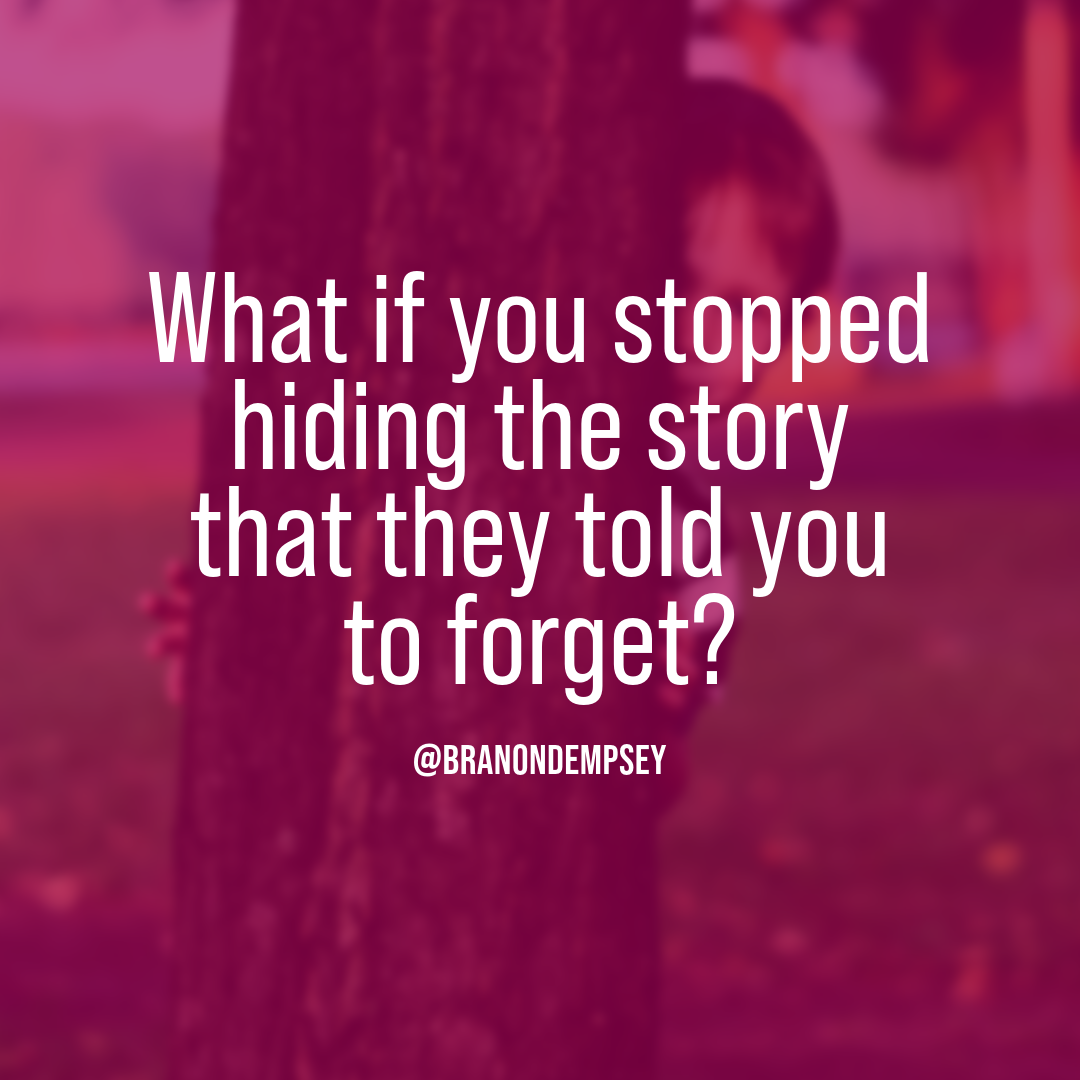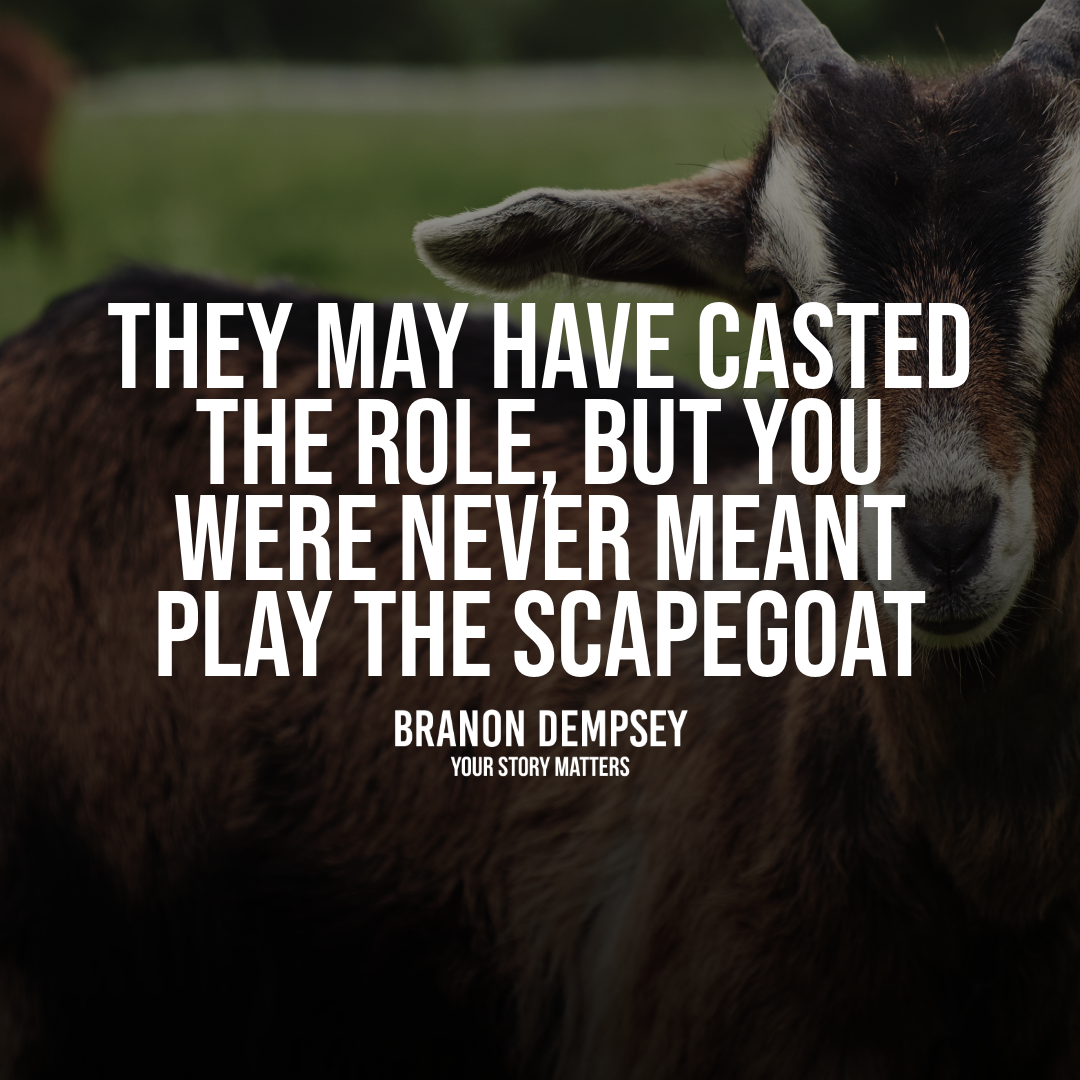Hi friends! I want to express my gratitude for joining my platform.
I'm Branon Dempsey, and I have endured various forms of abuse from the age of 6 to 17. My goal is to support fellow survivors in their healing journey from past traumas. This mission is deeply personal to me as I am also in the process of healing. Building a community where we can support and motivate each other is important. It reminds us that we are not alone and fosters a sense of belonging and security.
Recently, I completed my autobiography named "Facing The Shadows," which recounts my survival of childhood sexual abuse. I am still on the path to recovery and working on another book. This upcoming book will not only share parts of my story but also provide a structured guide for survivors to find inspiration and tools for their own healing journey.

Where It Started
My family went through a divorce when I was five years old, with my father leaving us and my siblings following suit soon after. During this confusing time, I encountered numerous individuals in our neighborhood who took advantage of me physically and sexually. The situation only worsened when my father remarried and my stepbrother, who turned out to be my main abuser and troublemaker, joined our family. I turned to God for help at the age of nine, but the pain and trauma persisted. I faced battles of abandonment, manipulation, control, suicide attempts, substance abuse, and sexual abuse within my family and close circle of friends.
By the time I reached college, I had separated myself from those dangerous relationships. But then I carried treated trauma with me, which seemed to bring worse ramifications of trauma than the initial event itself. I came from a musical family. I have been a music and in the industry all my life. During my last years of college, I found myself to music in the church for the next 25 years. I thought that by developing my skills and serving God and people, the pain would fade away, but it just had an adverse effect. The reason is that I kept burying my pain, not only in my service to God but in my work, family, relationships, and friends. I lived a lie all my life, believing that I could forget my childhood pain as long as I could try to ignore it and act like it never happened.
After a while, I came to understand that I was constantly struggling with myself, waking up each day feeling defeated before even starting the fight. It became so overwhelming that I contemplated ending my life multiple times, leading to a few years consumed by depression. This constant inner battle took a heavy toll on me, emotionally and physically, from the pain, distress, and sadness I was enduring until I reached a breaking point. It was then that I acknowledged the need to break free from this cycle, but I felt trapped in my suffering, unsure of how to escape.
Beginning to Heal
By starting therapy, I began to confront the deep pain within me, particularly from my childhood. With the help of skilled therapists and resources, I slowly began to face and heal from the trauma that was affecting me so deeply. I not only discovered my true self and moved past my past struggles, but I also was finally able to express and release the pain that had been inside me for so long. There were moments during therapy when I found myself breaking down and crying for hours, overwhelmed by the emotional weight of 11 years of suffering. This experience helped me to understand the importance of confronting and dealing with inner pain in order to heal and move forward.
Even now, I constantly reflect on the painful events that have occurred. It's a common misconception that time will make trauma disappear, but in reality, burying and denying your pain only pushes it deeper. Trauma doesn't just fade away on its own, especially without proper treatment. I've realized that memories are like a camera in your mind, capturing everything that has happened.
The lasting impact of traumatic memories can be a difficult hurdle for many people to overcome. Revisiting painful images and memories can be incredibly challenging, as they are often ugly and difficult to face. The pain seems to always linger beneath the surface, waiting to resurface when least expected. It can feel overwhelming when the trauma finally demands to be dealt with, resembling a volcanic eruption. This was my own experience when confronting my trauma.
Triggered Trauma
My Path Today
Every day I work on my trauma, facing ups and downs. I've realized the importance of expressing my feelings, talking, staying connected to my mind, and moving forward. I invite you to join me on this journey, where we can support each other through dialogue. I'll be sharing my thoughts and updates on my book, "Facing The Shadows," here on my Substack. Thank you for being a part of this conversation and journey with me.
Copyright 2024 Branon Dempsey / Your Story Matters
All Rights Reserved. Admin by WTT Productions
@BranonDempsey
✅ Does this content resonate with you? Your Story Matters may be the right page for you to like, share and follow!
#YourStoryMatters #NarcissisticAbuseRecovery #TraumaHealing #TellTheTruth #GaslightingAwareness #BranonDempseyWrites
Articles That Matter


